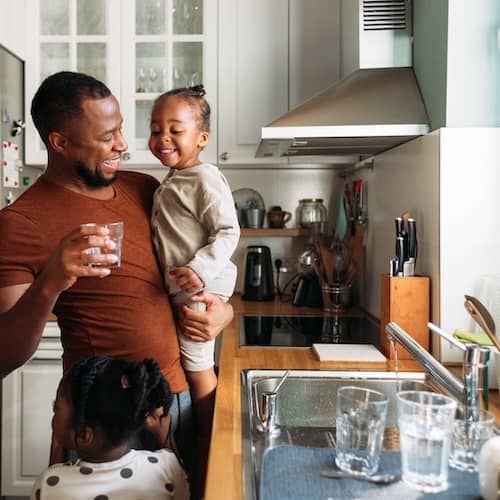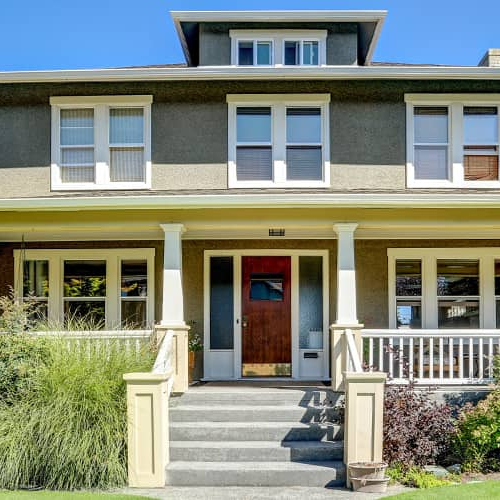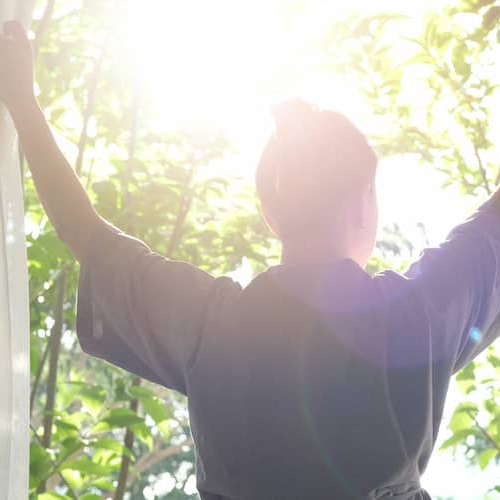The costs of buying a house that first-time home buyers should prepare for
Contributed by Tom McLean
Oct 31, 2025
•7-minute read

The first step toward becoming a homeowner is asking: How much does it cost to buy a house? The answer is more complicated than it may seem. When you're starting out, your primary focus likely will be on the down payment and the monthly mortgage payment. But there are additional costs that aspiring homeowners need to understand and be ready to pay for.
Up-front costs of buying a house
When you buy a home, you need to put some money down up front to cover costs such as a down payment and closing costs.
Down payment
One of the most significant expenses when buying a home is the down payment. This is the amount you pay up front to buy the home, with the remainder of the purchase price financed through a mortgage.
The amount you need depends on the type of mortgage you plan to use. Conventional loans require a down payment of 3% for fixed-rate loans, while some government-backed loans require no down payment at all.
|
Type |
Down Payment Required |
|
Conventional loan |
3% for fixed-rate loans, 5% for adjustable-rate loans. Down payments of less than 20% must pay an additional monthly fee for private mortgage insurance. |
|
Varies by lender, often at least 10% |
|
|
3.5% |
|
|
None, though the lender may require a down payment |
|
|
None, though the lender may require a down payment |
The larger your down payment, the less you need to borrow to buy a home. It also reduces the lender's risk and can help you get a lower mortgage rate.
What does my down payment cover?
Your down payment covers a portion of the home purchase price.
For example, if you buy a single-family home that costs $425,000, you might make a $25,000 down payment and borrow $400,000 with a conventional mortgage, which comes to about 6%. Since your down payment is less than 20%, you'll need to pay a monthly fee for private mortgage insurance until you have at least 20% equity in the home.
If you buy a townhouse with an FHA loan, you'll need to put down at least 3.5%. If the townhouse costs $310,000, that means you need a down payment of at least $10,850.
If you can afford a larger down payment, it may be easier to get approved for a loan and secure a lower interest rate. It also will reduce your monthly mortgage payment and help you avoid having to pay for PMI.
You can use the Rocket Mortgage® affordability calculator to estimate how much you can afford to spend on a home.
What if I can't put 20% down?
Making a down payment of less than 20% of the purchase price on a conventional loan means your lender will require you to pay for PMI. This fee is added to your monthly mortgage payment. PMI reimburses the lender for its losses if you default.
FHA loans require borrowers to pay a similar fee for mortgage insurance premiums (MIP). The amount you pay in MIP is a percentage of the loan amount, and the amount and term depend on the size of your loan and down payment.
For example, on a 30-year loan, MIP is 0.8% of the loan amount and lasts for 11 years if you make a 10% down payment. It can rise to 0.85% and remain in effect for the duration of the loan if your down payment is 5% or less.
What if I can't afford a down payment?
Many first-time home buyers are eligible for down payment assistance programs. However, not all lenders accept all programs. If you want to use down payment assistance with a Rocket Mortgage loan, contact a Home Loan Expert to confirm the program is compatible.
Earnest money
Many buyers offer an earnest money deposit when submitting a bid on a home.
In a competitive housing market, earnest money helps your offer stand out. It's common to offer between 1% and 3% of the sale price as earnest money.
Earnest money is paid when the buyer and seller agree to the terms of a sale, and it is applied to your down payment or closing costs when the sale is finalized.
Earnest money demonstrates to the seller that you're serious about buying the home. If the sale is canceled for a reason not covered by a contingency in the purchase agreement, the seller keeps the earnest money.
Closing costs
Closing costs refer to various appraisal and inspection fees, taxes, and administrative costs associated with buying a home. Closing costs cover services such as the home appraisal, title insurance, the lender's origination fee, the home inspection, and the recording of documents that transfer legal ownership to the buyer.
Expect to pay 3% – 6% of your total loan amount in closing costs. For example, if you take out a $500,000 mortgage, you'll likely pay $15,000 – $30,000 in closing costs.
Like your down payment, your closing costs are due when you close on the loan and take legal ownership of the property.
Moving costs
You'll also need to consider the cost of moving into your new home.
For a local move, the average cost is around $1,700 for a two- to three-bedroom home. If it's a long-distance move – one that exceeds 100 miles – it'll cost more. Long-distance moves can cost anywhere from $2,700 to $10,000.
Ongoing expenses when buying your first house
Once you've bought a home, you'll be responsible for the monthly mortgage payment, but there are other costs you also must keep in mind.
Property taxes
Property taxes are levied by state, municipal, and county governments. The money raised by these taxes funds services such as road maintenance, public education, emergency services, and the like.
How much you pay in property tax depends on the value of your home and the tax rate where it's located. For example, if your town has a property tax rate of $17 per $1,000 in home value and your property is assessed to be worth $400,000, you'll pay $6,800 per year in taxes.
Property tax rates vary, so check the local tax rate before you buy a home.
How do I pay for property taxes?
Most homeowners pay their property taxes using an escrow account. Property taxes usually are due once or twice a year. To make sure property taxes are paid, lenders will estimate your annual tax bill, divide it into monthly installments, and then add that amount to your mortgage payment. The money collected from the fee is kept in an escrow account, and your lender pays your tax bill on your behalf. This ensures the tax bill is paid in full and on time.
If your lender doesn't offer an escrow account or you opt out of using one, you'll be responsible for paying the tax bill.
What happens if I don't pay property taxes?
If you don't pay your property taxes, your local government can place a tax lien on your property. This lien limits what you can do with your property, blocking you from selling it or refinancing your mortgage until you pay your tax bill plus penalties and interest.
If you fail to pay your taxes for long enough, the city could take possession of your home and sell it to recoup the money it is owed.
Insurance and HOA fees
If you have a mortgage, your lender will likely require you to buy homeowners insurance. Most insurance policies are paid annually, and many homeowners will pay their bill using an escrow account established by their lender.
Depending on where you live, you may need to purchase additional types of coverage, such as flood or earthquake insurance.
If you live in a community that has an homeowners association, you'll also have to make monthly HOA fee payments. These can vary widely depending on the amenities your HOA provides. Some lenders may allow you to pay HOA fees through an escrow account.
Utilities, maintenance, and repair costs
You'll need to pay for your home utilities. According to Move.org, the average American pays about $5,364 each year for essential utilities such as electricity, natural gas, water, sewer, and trash as of late 2024. This figure does not include phone, internet or streaming services. You will also need to plan for periodic increases in the cost of utilities.
You'll also need to pay maintenance and repair costs. It’s a good idea to prepare an emergency fund to cover unexpected repairs. A common rule of thumb is to budget for 1% to 3% of your home's value for repairs each year, so if your home is worth $415,000, you should have between $4,150 and $12,450 in your annual budget for repairs.
Regular maintenance can help reduce repair costs by addressing problems before they become more expensive to fix.
Appliances and décor
When you move into a new home, you'll want to make it your own by furnishing and decorating it. This can range from a new coat of exterior paint, which generally costs around $3,737 according to data gathered by Angi for 2025. This amount will vary based on the size of the home and other factors which may make the job challenging for painters.
If you're handy, consider doing some of the redecorating or remodeling work yourself to save on costs.
While most homes come with appliances like refrigerators, ovens, washers, and dryers, you'll want to check the fine print of your home purchase contract. You may want to upgrade what's already there, so be ready to pay for new appliances after you move in.
The bottom line: How much does buying a house cost?
The total cost of homeownership is significant, so it's important to be prepared. Think about up-front expenses like closing costs and your down payment, and make sure you have enough money saved. Also, keep ongoing costs like property taxes, HOA fees, and homeowners insurance in mind when budgeting to buy a home.
If you're ready to take your first steps toward homeownership, apply for a loan with Rocket Mortgage® today.

TJ Porter
TJ Porter has ten years of experience as a personal finance writer covering investing, banking, credit, and more.
TJ's interest in personal finance began as he looked for ways to stretch his own dollars through deals or reward points. In all of his writing, TJ aims to provide easy to understand and actionable content that can help readers make financial choices that work for them.
When he's not writing about finance, TJ enjoys games (of the video and board variety), cooking and reading.
Related resources

10-minute read
How much house can you afford?
Ever asked, “How much house can I afford?” Determine how much you can spend on a mortgage with help from the Rocket Mortgage home affordability calc...
Read more

5-minute read
How much money do you need to buy a house?
Ready to buy a home? Explore different home buying costs, such as the down payment and closing fees, to determine how much money you need to buy a house.
Read more

9-minute read
Home hunting tips: How to find a house
From getting a mortgage approval to viewing homes, the house shopping process involves several big steps. Get familiar with how to find a house here.
Read more